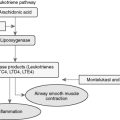CHAPTER 11 Dermatologic Disorders
I. Acne
B. Over-the-counter (OTC) topical treatments may dry up the oil, reduce bacteria, and promote exfoliation.
C. Prescription topical retinoid products that are derived from vitamin A work by promoting cell turnover and preventing blockage of the hair follicle.
D. Antibiotics
1. Erythromycin (Erygel, Emcin, Emgel, Akne-mycin, others)
a) Anti-inflammatory properties that help reduce redness in lesions, in addition to killing bacteria
2. Clindamycin (Cleocin T, Clindagel, Clindaderm, Evoclin, others)
a) Widely prescribed as a topical antibiotic for acne, rarely used systemically for acne due to side-effect profile
3. Tetracycline
b) Dose
4. Isotretinoin (Accutane, Claravis, Sotret)
a) Effective for scarring cystic acne or acne that does not respond to other treatments. It is reserved for the most severe forms of acne.
c) Caution
(3) Pharmacists must also provide a detailed warning brochure called a MedGuide from the United States Food and Drug Administration (FDA) to all patients prescribed isotretinoin. All prescribers, pharmacies, and patients must also register and participate in the iPledge risk-management program in order to prescribe, dispsense, or receive the drug.
E. Oral contraceptives (OC)
1. May exacerbate or improve acne depending on the progesterone component’s androgenic activity. Those with greater androgenic activity (levonorgestrel) tend to exacerbate acne, and those with less (norgestimate) or no (drospirenone) androgenic activity have been reported to improve acne in women.
2. Oral contraceptives increase the risk of thromboembolic events, especially in women older than 35 years who smoke. Remember ACHES acronym to remember thromboembolic warning signs: Abdominal pain, Chest pain, Headache or pain or changes in the eyes, severe pain or swelling in the legs or the thighs
II. Alopecia
A. Alopecia areata: an autoimmune disorder in which the body’s immune system attacks hair follicles, resulting in unpredictable patches of hair loss on the scalp, face, and other parts of the body.
B. Androgenic alopecia: an inherited form of baldness. Unlike men, women rarely develop complete baldness. Women usually experience hair thinning only.
1. Treatment
a) Minoxidil (Rogaine)
c) Spironolactone (Aldactone)
(1) Originally marketed as a diuretic (water pill) for patients suffering from congestive heart failure. Women now take the drug off-label because its antiandrogen properties may stop and sometimes reverse hair loss. It may also be more effective in postmenopausal women and may be taken with a hormone replacement pill.
IV. Dermatitis
A. Atopic dermatitis (eczema) is a chronic disease, and symptoms can disappear and recur over time. The skin of an affected individual is flaky, red, and itchy. The skin covering the joints and face is most commonly affected. Symptoms can be managed. Minimizing contact with known allergens can reduce the severity of symptoms.
B. Contact dermatitis: a rash that develops after contact with an allergen or skin irritant. Poison ivy, poison oak, and poison sumac produce urushiol, an oil and the allergen responsible for the allergic reaction that usually develops 24–48 hours after contact with the oil. However, it can take several days to 1–2 weeks for the rash to resolve. Patients who are allergic to these plants may experience a rash that consists of swollen, itchy, red bumps and blisters that appear wherever the oil has touched the skin.
1) Prevention: Avoidance of contact irritants, wearing of protectant clothing and gloves if irritant exposure is possible or cannot be avoided, skin protectant lotions like Ivy-Block can be tried, but must be applied at least 15 minutes before exposure and reapplied often (after 4 hours) if activity is prolonged.
2) Treatment and relief from symptoms
(a) General care includes removal of contaminated clothing and washing the affected skin with soap and cool water. Washing within 10 minutes of exposure may help limit the reaction.
(b) Systemic antihistamine such as diphenhydramine (Benadryl). Topical application of diphenhydramine is not recommended because it can cause sensitization.
V. Pediculosis and Scabies
VI. Warts
B. Anogenital warts (caused by select types of HPV)
VII. Psoriasis
IX. Dermatologic Bacterial Infections
PATIENT PROFILE
RM is a 43-year-old man seeking pharmacist assistance for the ongoing topical maintenance management of his psoriasis. His condition is classified as moderate to severe and has affected his joints (symptoms and signs in his hands and knees are consistent with psoriatic arthritis). He has scaling and plaques on more than 20% of his skin.
Recent History: TH underwent biologic aortic valve replacement (BAVR) last month due to newly found congenital valvular disease. He is doing well after open heart surgery to replace the valve.
Work: Unemployed; receives disability compensation due to affect of psoriasis on the joints in hands (was formerly a chef)
Past medication notes: No longer taking Naprosyn 500 mg PO twice daily after open heart surgery due to warfarin prescription, which is expected to continue for another 2 months; had to discontinue infliximab (Remicade) infusion treatments last year due to cardiac symptoms (slight symptoms of mild heart failure).
PATIENT PROFILE QUESTIONS
1. TH asks the pharmacist about skin hygiene tactics that may be useful in limiting scaling and improving skin appearance and that would not interact with his current prescribed medications. Which of the following topical skin care adjuncts are typically recommended for patients with psoriasis?
REVIEW QUESTIONS
(Answers and Rationales on page 356.)
1. The hospital pharmacy in which you work has added mometasone 0.1% cream as the preferred medium potency topical steroid. Which of the following is a medium potency topical steroid and is being replaced by mometasone?
3. Which of the following is first-line therapy for mild rosacea?
Read the following case study and then answer the questions that follow.
7. Which of the following is a high potency steroid in appropriate strength for second-line psoriasis treatment?




